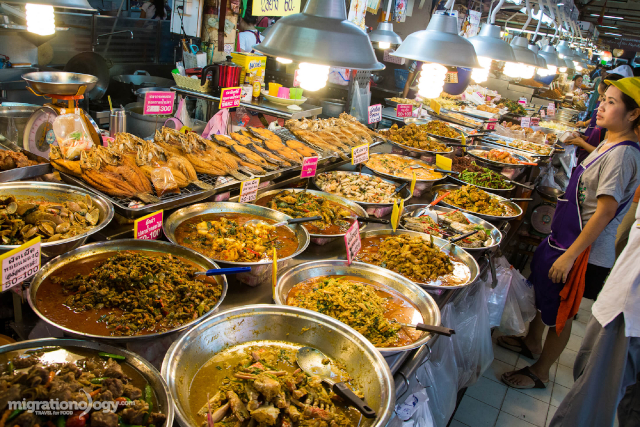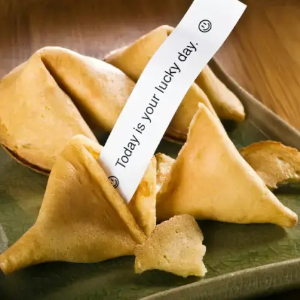We all know AI is displacing humans in the food service sector, in kitchen and counter service jobs. But now AI is taking human food service jobs in such creative specialties as recipe and menu creation, and even fortune cookie writing…
 Utimately, the success or failure of AI-based food service industry systems will depend
Utimately, the success or failure of AI-based food service industry systems will depend
on the level of confidence that human eatery proprietors have in them
to keep track of huge recipe or menu item inventories…
Over the past year or so, most of the large fast food chains have announced or unveiled new business models. They’re minimizing human participation, focusing on digital order-and-pay systems and even robotized order fulfillment systems.
But few have guessed that artificial intelligence systems are on the verge of displacing even more humans in traditionally human-centric jobs such as recipe and menu management and even fortune cookie writing.
What is ChatGPT?
According to a recent article by Alexandra Domrongchai in Food and Wine magazine: “ChatGPT (or Generative Pre-Trained Transformer) is an artificial intelligence language model that has garnered global attention for its remarkable ability to engage in what appears to be conversational dialogue. Developed by OpenAI, ChatGPT was trained, “through ‘reinforcement learning with human feedback,” which essentially means it was fed prompts and given a ‘reward’ for good responses.
When I was in university, we called that Operant Conditioning, invented by pioneering psychologist B.F. Skinner way back in the 1930s. It’s been used before to ‘train’ computer systems to make simple decisions and act on them with a narrow range of options. Now, with language interpretation systems such as ChatGPT added to their front ends, more-complex, more-‘human’, more-independent computers are starting to make even deeper inroads to the human job market.
There are still limits
But there are still limits to how creative a ‘Chef’-puter can be. Essentially, successful computer thinking depends on the data, depth and scope of examples given to it by human trainers. Or absorbed by it through examination of digitized recipe and food service manuals.
Nevertheless, one area where AI systems is finding success is writing fortune cookie messages.
OpenFortune, a company that has combined advertising with fortune cookies, is one of the first to invest in ChatGPT tech to create cookie messages. Co-founder Shawn Porat told The Wall Street Journal that the robot-generated messages are virtually ‘indistinguishable’ from those written by industry veterans.
Fortune cookie pros point out that cookie messages are already largely formulaic in structure and subject matter, and the scope of the fortune writer bot is by definition very narrow. The variety of phrasings and vocabulary at its disposal can only be as broad as those provided by their human trainers. Writing fortune cookie messages should right in ChatGPT’s wheel house. Where it really excels is how fast it can compose and deliver fortunes. Even versions with the usual translations into languages other than English, lucky/lotto numbers, ancient proverbs and other content.
Opions in food service sector divided
In general, it’s thought a majority of resto operators remains unsure about the ‘quality’ and consistency of AI-generated fortunes. An article in the Wall Street Journal recently quoted one cookie maker as saying AI generated fortunes are a sign that society is moving too fast. Turning to computers would mean losing the humanity and meditative nature behind the fortunes.
Wonton Food Inc., which supplies more than 40,000 restaurants U.S. wide owns a message database of over 15,000 fortunes. The company cycles through this library continuously to ensure patrons never receive repeats. Wonton VP of sales, Derrick Wong, admits the task of fortune writing can be challenging. He insists that humans must remain in the loop to prevent ‘insensitive’ offensive or boring fortunes don’t get out, into the wild.
By contrast, Charles Li, owner and CEO of fortune cookie maker Winfair Foods Inc. is already using OpenFortune’s cookie-writing software as a timesaver. Li previously employed a small army of freelance writers to create fortunes for the 11,000 restaurants his company supplies U.S.-wide. He says he used to spend hours writing fortunes himself. But the OpenFortune app can produce the same number of new fortunes in mere seconds.
Ultimately, the success or failure of AI-based food service industry systems will depend on the level of confidence that human eatery proprietors have in them…
~ Maggie J.

